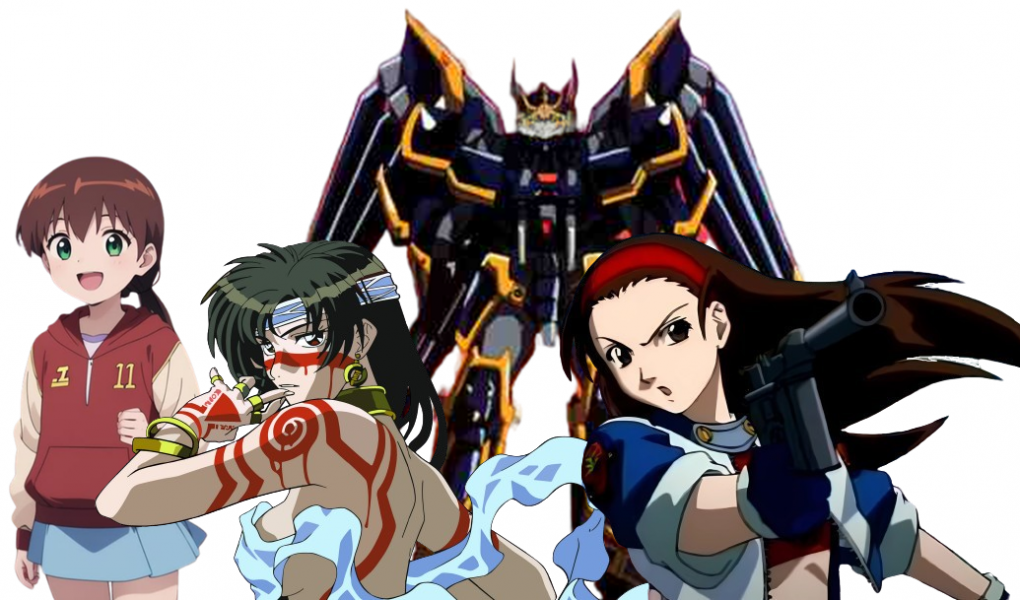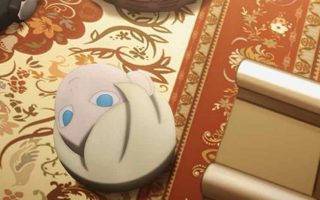Question:
With the passage of time and changing circumstances, do you believe certain disliked anime have been vindicated?
Answer:
Less than two generations ago anime was such an unknown and unheard of medium in the United States that fans who were aware of it called it “Japanimation,” as a means of straightforwardly defining what it was. Since the foundation of US Renditions in early 1987 and AnimeEigo in 1988, American viewers have been exposed to a steadily and rapidly increasing amount of Japanese animation, resulting in the perspectives and tastes of American fans evolving and maturing with experience. I don’t think I can say that any anime title has ever undergone a complete reversal of reputation among American otaku. But in a few cases, opinions do seem to have come around.
In 2005 AD Vision was charged with the production of an English-friendly release of Studio Pierrot’s 2000 anime series Gakko no Kaidan, known in English as “Ghost Stories.” According to English dub producer Steven Foster, ADV Films made the “business decision,” “It’s a little show from a studio, kinda didn’t do very well, what if we just give it to Steven and say ‘knock yourself out, just go crazy.’” So, “We made it up as we went along and it was so wonderful; it was great that we got Best Dub of the Year from Anime Insider.” Despite the fact that the 2000 Gakko no Kaiden anime was part of longer and larger franchise of novels, live-action movies, and video games all based on the same traditional Japanese mythology that underpinned anime including High School Mystery Gakuen Nanafushigi, Haunted Junction, and various iterations of Toile no Hanako-san, the anime wasn’t respected enough to be considered deserving of a faithful dub translation. Granted, licensor Fuji TV reportedly gave ADV few restrictions on its translation and allowed the studio to “go wild with it.” However, in January 2024 the liberal English dub of Gakko no Kaiden became one of the primary illustrations (in addition to Kobayashi’s Maid Dragon) in a fan backlash against loose and “Americanized” script translations. Granted, interest in the Gakko no Kaiden anime series among American viewers hasn’t increased, and the perception of the original show hasn’t changed much. But the show, which was once considered so insignificant that it didn’t even merit serious treatment, has become a rallying point for the respectful and diligent treatment of imported art.
If my memory is accurate, at least one of the English voice actors behind AD Vision’s translation of 1998’s Nankai Kio Neoranga stated publicly that the show sucked. Furthermore, reportedly the official subtitle translation is inaccurate and periodically omits lines of the Japanese dialogue. As a result, throughout the early 2000s Neoranga had a poor reputation, primarily among Americans who hadn’t actually watched the show and instead mindlessly parroted the common criticism. However, in more recent years the American fan community has seemingly forgotten its old disregard for the show, resulting in more viewers watching the series with fresh eyes and discovering that the show is flawed yet ambitious and admirable for its rich characterizations, complex mythology, complicated storyline, and tendency to alternate between cheerful, playful comedy and dark, brutal, unpredictable drama. After all, the series was created by Sho Aikawa, the screenwriter behind Nadesico, Rahxephon, Oh! Edo Rocket, Un-Go, and Eureka Seven, among other titles.
For probably twenty years the 1986 OVA Souheiki M.D. Geist was a punching bag for American otaku. And thanks to John O’Donnell affectionately making the titular character the mascot of the Central Park Media licensing company, most of the anime licensed and distributed by CPM gained a reputation as third-rate productions. But in the years following the shuttering of CPM in 2009, absence has seemingly made the heart grow fonder, and the American fan community has re-evaluated M.D. Geist as a sort of “so bad it’s good” treasure.
Similarly, despite initially airing on Japanese television in 1974, Knack Production’s sci-fi action series Chargeman Ken went mostly overlooked and forgotten, even in Japan, until being rediscovered by Japanese otaku when the series hit Japanese DVD in 2007. The show was re-aired on Japanese television in 2008 and again in 2011. The ironic fame and infamy of the cheap, flawed, carelessly produced Japanese show became a viral sensation and meme among otaku in Japan, eventually bringing the show to the attention of Americans and leading to an American home video release in 2017. Chargeman Ken can only be called “good” in the sense of “so bad that it’s good,” so saying that the American attitude toward the show has evolved isn’t precisely correct. Rather, the show went from completely unknown and unheard of even among the most hardcore of American anime fans to getting an American DVD then Blu-ray release strictly inspired by the viral popularity of the show as a goofy meme.
While the selection of all of these titles is my own subjectivity, I’ll conclude by escalating my personal sentiment. AN Entertainment licensed, localized, and distributed the 2000 television series Miami Guns because I pushed for the acquisition. No one else at AnimeNation had ever heard of the title. I shared my “raw” VHS copies of the 13 episodes and emphasized the serendipity of being a Florida-based company distributing an anime set in a fictional Miami. While some proponents including Anime News Network (ANN) critic Bamboo Dong and Glass City Con organizer Chris Zasada expressed positivity and praise for the show upon its American release, other critics including ANN’s Mike Toole severely criticized it. Twenty years after the American DVD release, I now feel gratified to see the show earning a respectable 6.9 IMDB score, a reddit thread titled “Miami Guns: The best cop show parody you’ve never heard of!” and viewer reactions including, “I have to defend this anime after a lot of people were telling me how crappy it was… Miami Guns manages to hit far more than it misses.”




